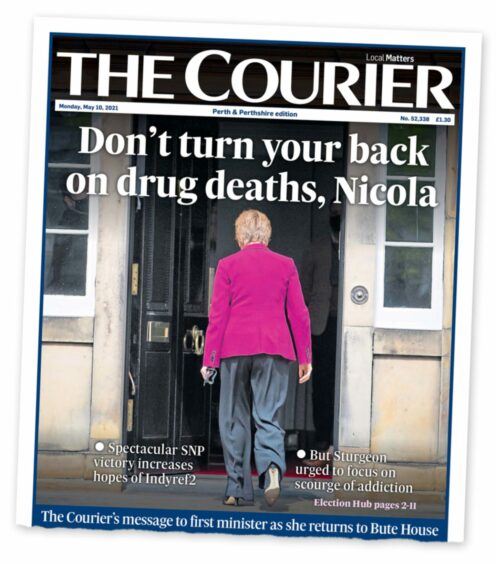A week after Dundee’s Shona Robison unveiled the SNP government’s draft Scottish budget, the detail has been understood.
Last week, I said Ms Robison had clearly been reading The Courier as she put together the government’s spending plans.
A huge cash injection into the NHS, money to invest in the culture sector and good news for the university sector should all – in theory – tackle some of the biggest crises facing Tayside and Fife.
But I also argued the devil would be in the detail, and so it came to pass.
Detail of budget reveals trade-offs
Diving into the detail of finance chief Ms Robison’s sums, it’s clear some significant and important trade-offs have been made.
And some decisions, taken after a huge increase in the money on offer to Holyrood from Westminster, seem particularly short sighted.
Not least a £500,000 cut in the cash set aside for alcohol and drugs policy, and a £13 million cut compared to what was actually spent in 2023-24.
However unglamorously named, the allotted £80.9 million is used for crucial work to tackle to very real and devastating impact alcohol and drugs can have on communities and families across Scotland.
Just like the crisis in NHS waiting times, these harms have also been covered in The Courier.
We have reported extensively on Dundee’s drugs death crisis and shared how an increasing number of deaths are directly linked to alcohol.
It is a dual-crisis that shows no signs of slowing down. New figures out this week reveal 121 deaths had a suspected link to drugs across Tayside in Fife so far this year.
That’s only four fewer than during the same time period last year.
Progress welcome – but now is not the time to take our eye of the ball
Any progress is welcome, and the figures have shown that the shameful number of lives lost to drugs is falling. But progress is slow.
It makes Ms Robison’s decision to slash the budget by half a million seem particularly short sighted.
It’s a choice Scotland may come to regret – last time government took it’s eye of this issue the number of deaths surged to record levels.
But around 74% of the £80.9 million is dedicated to the “national mission” on drugs death. The rest is spent of prevention and dealing with the consequences of problem alcohol and drug use.
Recommendations ignored
It reveals that the Scottish Government has ignored a recommendation from Audit Scotland to increase funding to tackle alcohol harm by mid-2025.
Alcohol-linked deaths in Scotland are at a 15-year high, with 1,277 across the country in 2023.
As with drugs, Dundee reported an above average number of fatalities.
Experts fear the renewed focus on tackling drugs deaths in recent years has seen tackling alcohol harms slip down the agenda.
Kathryn Baker, director of recovery provider Tayside Council on Alcohol, agrees.
She said that while there has been an improvement in drug services, this has left alcohol services neglected at a time when TCA is seeing increased demand.
Experts disappointed
Laura Mahon, Deputy CEO of Alcohol Focus Scotland, says: “Three years ago, the Scottish Government used their budget to declare alcohol a public health emergency, yet this year made no mention of a crisis that has only worsened during that time – with alcohol deaths hitting a 15 year high in 2023.
“The Scottish Government has repeatedly pointed to funding for the national mission as evidence that they are taking alcohol harm seriously.
“Yet Audit Scotland has now confirmed what Alcohol Focus Scotland has been saying for some time – that tacking alcohol onto the National Mission for Drugs is totally insufficient for the scale of the problem and has led to reduced focus on tackling alcohol harm.”
The Scottish Government has been accused before of losing focus on how to use its powers to tackle some of Scotland’s huge challenges.
It is abundantly clear that the harmful impact of alcohol and drugs remains as significant a challenge that must be confronted.
Too many families, permanently scarred by addiction, already know the awful reality of these crises.
They know too the anger that comes from seeing their loved failed by an under resourced system. Too often, it has allowed those with addiction to be diverted to the criminal justice system as opposed to treatment and recovery.
In Dundee, once the drugs death capital of Europe, that pain has been too familiar.
In 2018, Ms Robison faced calls to quit as health secretary over the scandal of growing drugs deaths.
Reports revealed progress had stalled on her watch as recovery waiting times spiralled and budgets were gutted as NHS board made efficiencies to deal with increased operating costs.
Now holding the purse strings, Ms Robison may once again come to regret being in the firing line if the government loses its grip on these dual crises.













Conversation